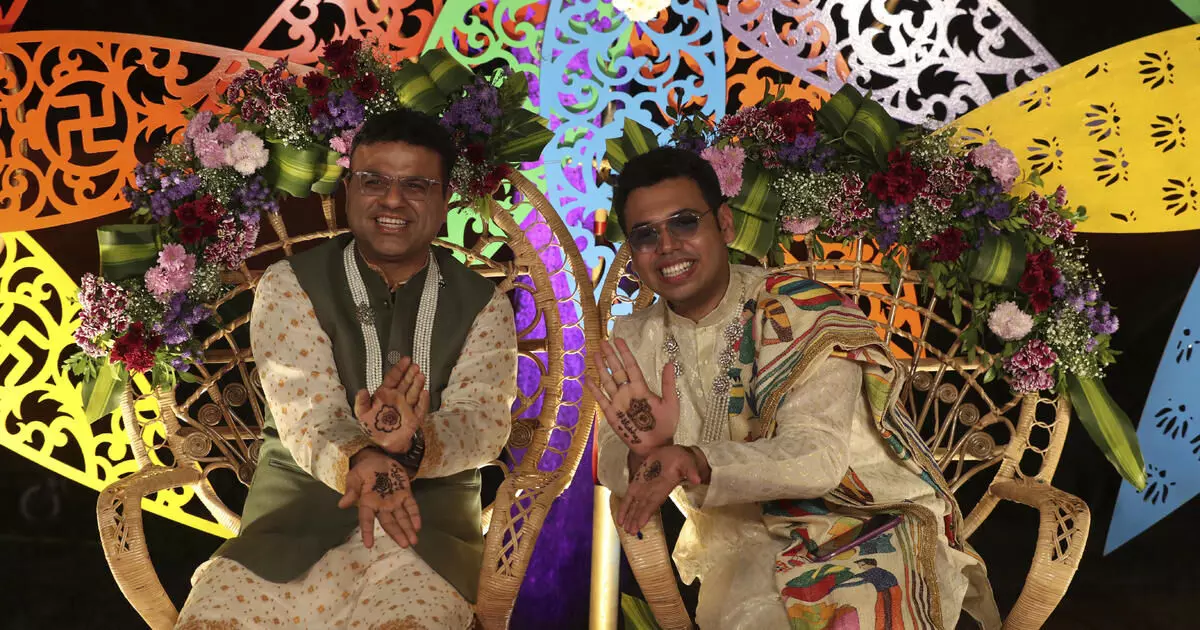A conservative standpoint?

The Centre’s 56-page long affidavit arguing against the legalisation of same-sex marriage exposes its aversion to the cause of facilitating LGBTQ+ rights. Five years back, the Centre had to concede to the decriminalisation of homosexual relations rather reluctantly. It appears that the same questions which discomforted the Central government during the striking down of Section 377 of the Indian Penal Code, have come to haunt it again. In its affidavit — which can be seen as a counter to the bunch of petitions, advocating the legalisation of same-sex marriage, filed before the Supreme Court — the Centre has invoked its much-loved idea of ‘sanskar’ (good demeanour) and asserted that the “notion of marriage itself necessarily and inevitably presupposes a union between two persons of the opposite sex.” It is unreasonable on the part of the government to float such flawed ideas of social mores and values. In the first place, the Centre should draw limiting boundaries for itself in terms of moral policing, particularly when it pertains to basic individual choices and rights. Secondly, the striking down of Section 377 of the Indian Penal Code should have put an end to the social taboo related to same-sex relations. Unfortunately, that has not been the case. Despite the legal decriminalisation of same-sex relationships, five years down the line, the social acceptability for such unions remains abysmally low. Incorporation of a powerful social institution like marriage can bring about that acceptance in the long run. In fact, the legalisation of same-sex marriage should have followed as a natural corollary of the striking down of Section 377. Marriage between same-sex couples will bring forth a whole lot of social perks like adoption, medical consent, pensions etc. These perks are prerequisites for ensuring an all-encompassing framework of basic rights for the LGBTQ+ community. The legalisation of same-sex marriages will indeed be a landmark moment in terms of LGBTQ+ rights. This move has to be well-debated and calibrated. The Supreme Court did the right thing by devoting time to understanding the Centre’s concerns, apart from referring the matter to a five-judge Constitution bench under Article 145(3) of the Constitution. Some of the reservations raised by the Central government deserve to be considered for debate. While the consensus between the judiciary and the executive on legalising same-sex marriage is the bottom line of the debate, the minutes and technicalities also hold significance. The Centre’s assertion that the acceptance of same-sex marriage is not recognised in any uncodified personal law or codified statutory law in India, merits consideration. One is forced to wonder whether it should be “impermissible” for the Supreme Court to interfere/intervene in the legislative policy on same-sex marriage! This question becomes more important when seen against the backdrop of the Centre’s ostensible hesitancy in ensuring LGBTQ+ rights. Can the Parliament be trusted blindly on this front if the party in the majority is unanimous in its ideological assertion? How does one deal with the apparent bias? It may be pertinent to note here that in the past, several Supreme Court judgements have identified the right to marriage as being inherent in some of the basic rights enshrined in the Indian Constitution. In Shafin Jahan v. Asokan KM, the court noted that the “choice of a partner whether within or outside marriage lies within the exclusive domain of each individual.” In Shakti Vahini v. Union of India, the court went on to the extent of recognising it as a fundamental right under Articles 19 and 21 of the Indian Constitution. These judgements clearly contrast Centre’s argument of marriage being a matter of policy. It is as much a basic individual right which cannot be denied. Much will depend on the interpretation of the Navtej Singh Johar case. Both the Centre and the petitioners have based their arguments on the paragraphs of the same judgement. It should not be difficult to figure out what the court meant when it said that “social institutions must be arranged in such a manner that individuals have the freedom to enter into relationships untrammelled by the binary of sex and gender.” If marriage is not the appropriate social institution for this purpose, then what else is? Perhaps it is time to shed conservatism. The judiciary, the executive and the legislature need to be on the same page to free society from the shackles of conservatism.



